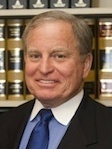Top 10 Worst prosecutors in the United States — 2008
The ten worst prosecuting attorneys in the United States for the year 2008 are finally here! After several nominations and recommendations from interested readers around the country, combined with ample amounts of time used to examine each prosecutor, the list has finally been narrowed down to the ten most deserving nominees. This year’s list includes several new nominees along with a few old ones. Added to this list are two prosecutors not quite worthy of the top ten but will be receiving honorable mention.
Unfortunately, over the past year not much has changed in the Department of Justice. Even with Alberto Gonzales no longer in the picture as the United States Attorney General, his effect is still there to be seen and felt. It seems as though the worst of his political manipulations and illegal activities are just beginning to unravel. Even after cleaning house in the Justice Department by bringing in new leadership that has expressed their commitment to heal the wounds left behind by some, little has been done to make sure that the Department will get headed in the right direction.
Prosecutors from around the country with extreme political affiliations connected to their communities, the Justice Department, and perhaps all the way to the White House have damaged the image of justice in America. The dedication of conservative power houses such as George W. Bush, Karl Rove, Monica Goodling, and Alberto Gonzales asserting their will and influence upon the judicial system has become extremely disturbing when taken into consideration the ways in which those tasks have been implemented with the undoing of the Constitution. It is the hope of this firm that justice is done for all Americans who have become victims of the acts committed by these troublesome prosecutors. It is further hoped that President-elect Obama and his new nominated U.S. Attorney General, Eric Holder, will set a new tone at the Department of Justice. So without further adieu, the Ten Worst Prosecutors of 2008 are:
Alberto Gonzales/ Former U.S. Attorney General
The former Attorney General now refers to himself as a “Disillusioned Republican” because of his testy relationship with George W. Bush, which he would like to distance himself from as much as possible. At the time of our second year, Alberto Gonzales has failed to interest any law firms in hiring him anywhere in the United States. Gonzales has had no full time job since his resignation. This is very abnormal as ex-U.S. Attorney Generals are typically highly sought after. He claims that his current “occupation” is an advisor to homeland security and border issues for a global consulting firm. Speaking engagements at major organizations and Universities is what he currently involves himself in the most. He is receiving as much money doing public speaking as he did when he was Attorney General of the U.S., which totaled around $191,000. He averages $30,000 per visit at Universities when asked to speak on campus, but he certainly earns that with the hecklers and protestors that show up.
Michael Mukasey, Gonzales’ replacement, is allegedly dedicated to keeping politics out of the Justice Department which is something Gonzales obviously was never able to do. Mukasey has also gone out of his way to help specific departments such as the Civil Rights Department. But Mukasey still lands on the back end of much negative criticism that has carried over from the Gonzales era. We hope that no more damage will be done in the next month.
Former Justice Department officials working under Alberto Gonzales have been accused of breaking the law by letting the Bush Administration’s politics dictate the hiring of prosecutors, immigration judges, and other career government lawyers. The official in charge of the interviews for hires was Monica Goodling who was Gonzales’ Chief Counselor and White House Liaison. Goodling would question applicants on views about abortion, gay marriage, and convict sentencing. Goodling made habits of avoiding any hire that seemed to lean to the liberal left of the Democratic Party. One man in particular was noted for attending a very Republican school but scored badly on God, gays, guns, and convicts. Screening such as this created massive backlog for immigration courts since so many judgeships were empty from the delayed interview process. One man was even disqualified because of his wife’s politics. None of the accused participants who worked under Gonzales currently work for the Justice Department anymore; therefore they avoid any departmental penalties. Senior Republicans have stated that there is no offense in this case that would warrant criminal charges. There is even some disagreement amongst Democrats as to whether or not a perjury charge would be warranted, though there is a large outcry for those charges coming from progressives. This type of interview screening is banned under the Civil Service Law and the Justice Department’s internal policies. Also, sworn testimonies of the accused have extremely contradicted one another. New Attorney General Michael Mukasey’s response was disgracefully lukewarm to this problem within the Department of Justice. Legislation is currently in the works to make sure that politicizing of the hiring of government officials does not happen again in the future thanks to several Democratic Congressmen. In summary, still bad news for Gonzales and the specter of a Texas Disbarment proceeding is also a possibility. Congratulations to the former A.G. for being a repeat nominee.
Charles Sebesta/ Former Burleson County, Texas DA
Charles Sebesta stands accused of orchestrating transcript changes during the trial of Thomas Torlincasi whose company donated the logs for the Aggie Bonfire that collapsed in 1998. Apparently, he would sit down with the court reporter after the trials, which happened to be a woman he knew personally, and re-wrote what they thought was relevant from the trial hearings. He also used ample amounts of evidence in the Bonfire case that was never submitted as evidence before trial. However, all of this evidence happened to have tagged and labeled as being submitted into evidence which proves that Sebesta was forging documents for his arguments. Sebesta became known for “doing business” with witnesses and victims that provided testimony in the Bonfire case that gave evidence in favor of Sebesta’s arguments.
Law enforcement officer testimonies in the case did not match. These officers all personally knew Charles Sebesta. The initial trial was declared a mistrial since certain jurors didn’t show up for court. Sebesta had two particular jurors not show up by having them pretend to be sick.
Sebesta charged Thomas Torlincasi with criminal negligence even though Torlincasi never committed an act worthy of a charge. Torlincasi had already spent time in jail before Sebesta decided to go after him in the first place. Sebesta allegedly blackmailed Ben Flencher who was testifying in favor of Torlincasi. Sebesta allegedly found out Flencher was having an affair and threatened his reputation and said he would give him up to his wife if he testified against his case. He first made the top ten with his role in the Anthony Graves Case and it now seems he has a track record going.
Charles C. Foti Jr./ Former Attorney General of Louisiana
Charles Foti finished last in Louisiana’s three-way primary in October 2007 and was replaced by James “Buddy” Caldwell Jr. in Louisiana. Foti now works at the law firm Kahn Gauthier Swick, LLC. He handles KGS’s securities and consumer fraud practice.
Foti is still the target of much criticism for his part in the prosecutions pursued surrounding Hurricane Katrina. Many families are taking advantage of Foti’s blunders by filing frivolous civil lawsuits against the doctors that Foti had accused during Hurricane Katrina and the doctors are still preparing for all of those civil cases; most of them are costing the doctors ample amounts of money.
The State of Louisiana has passed two bills in the senate to protect people from lawyers with habits similar to Foti’s which provide immunity from civil liability for in-state doctors and volunteers from out of state practicing in disaster zones. Protection from criminal liability is currently under House debate in Louisiana.
Alice Martin/ U.S. Attorney, Northern District of Alabama
If former Alabama Governor Don Siegelman had found a way to get out of the grasp of U.S. Attorney Leura Canary, he still didn’t have much of a chance to get away from the other mass of Republicans foaming at the mouth for the opportunity to take over the Alabama State Legislature. Alice Martin, an Alabama prosecutor who has been serving since September 2001, was another conspirator and attacker that aided in the successful attempt to takedown the Governor. Make no mistake; Alice Martin is involved in several scams besides the Siegelman trial as a prosecutor out of Birmingham, Alabama. Two of the most prominent cases involve Alex Latifi, a firm supporter of the ex-governor and active liberal Democrat, and Martin’s despicable prosecution directed at the Axion Corporation.
Martin’s destruction of Alex Latifi came out of political tensions considering Latifi is an adamant liberal Democrat. Latifi was known for making donations and contributions to the Democratic Party in the state of Alabama which helped keep many of their politicians afloat in a dominant Republican State. In order to take him down, Martin hired a team of political “hack” assistants. The Latifi case was also a prosecution created out of extreme racial tension directed at Latifi since he happened to be an Iranian-American.
This Alabama prosecutor’s heavy involvement in the Siegelman trial was one to raise eyebrows. Martin was the first person to prosecute Siegelman, which was strategically timed around an election in order to affect politics in Alabama. The first trial judge, without second thoughts or signs of hesitation, threw the case out because of the lack of evidence and the obvious motivation behind the timing of the prosecution.
Alice Martin’s history with the law is dotted with numerous accounts of misconduct and political manipulation. Martin once denied being involved in the prosecution of Dickie Scruggs, who was the former Senate GOP leader Trent Lott’s brother-in-law. She has made a habit of coordinating closely with senior GOP figures that are close to current Alabama Republican Governor, Bob Riley, which explains her agenda of prosecuting those of liberal ideologies. Interestingly enough, Martin was appointed by current President George W. Bush and craves an appointment as a Federal Judge in Alabama and is willing do anything to receive that appointment, even if achieving that goal means misusing the law for her own benefit.
She is also guilty of making false and inflammatory secret submissions to judges throughout the State. An example of disgraceful tactics outside of the courtroom is her waiting to serve subpoenas on law makers on the floor of the legislature that would be carefully timed to make the news. Martin is apparently a prosecutor that is willing to give false testimony in order to employ litigation in her favor. This was clear in her prosecution of The Axion Corporation trial in which she was the main prosecutor. Her main goal in the case was to put the company out of business by ruining their reputation whether or not the CEO’s were even convicted. In the end, Axion was acquitted of violating the Arms Export Control Act which was the most serious prosecutorial charge. The case against Axion was so outrageous that not only did the judge throw it out, but the judge in turn made Martin pay all of the court charges and all charges the defendants had to pay in order to prepare their defense.
Unfortunately, it has not been easy to criticize Martin for her antics considering she brings charges upon those who do criticize her, most notably, an individual employed at the University of Alabama. Martin is just another example of Republicans trying to take control of the legislature in Alabama, the only branch of the Alabama State Government that the Republicans do not control.
For prosecutorial actions, Alice Martin is being investigated by several Government organizations on many levels. She is facing multiple ethics investigations by the Office of Professional Responsibility for the cases of Siegelman and The Axion Corporation. She was also investigated by the Department of Justice for charges made against her for perjury. The Justice Department, headed by Alberto Gonzales, somehow conveniently found that she has never committed professional misconduct or poor judgment in office. The stranglehold of corruption in the Justice Department continues to let bad prosecutors like Alice Martin off the hook. If Alberto Gonzales were a straight shooting Attorney General who conducted his office legally and ethically, Alice Martin probably would have been disbarred and perhaps punished severely a very long time ago. Maybe this will change with a change of administration.
Leura Canary/ U.S. Attorney, Middle District of Alabama
The systematic destruction of Don Siegelman’s Governorship of Alabama is a prime example of corruption in our legal system and the Republican Party’s policy of muscling those in their way out of office, even if illegality is the only means of doing so. A list of big-time Republican lawyers, lead by Leura Canary, with the help of Republican stalwart Karl Rove, are accountable for destroying this politician’s office and together played a huge hand in the despicable sentence handed to the former Governor.
Democrat Don Siegelman was Alabama’s Governor from 1999-2003. He was the only Governor in Alabama’s history to hold all four major offices which included Governor, Secretary of State, Attorney General, and Lieutenant Governor. Admittedly, Siegelman as Governor, did not have the cleanest slate. In 2006, he was found guilty of corruption, obstruction of justice, bribery, and mail fraud. These charges were a connection between him and Richard M. Scrushy, founder and former CEO of HealthSouth. Details of the charges involved an exchange of $500,000 for a government job that would be given to Scrushy once Siegelman retained his office in 2006. Siegelman was also guilty of exchanging many other government favors for campaign donations.
Republican prosecutors jumped at the opportunity to wreak havoc upon Siegelman’s office. Canary immediately took action by having the first case against Siegelman dismissed in order to have the trial in front of a judge whom she knew had a personal grudge against Siegelman. During his trial for misconduct, he lost the gubernatorial elections which were taking place at the same time as the trial and would not be able to run against current Republican Governor Bob Riley. Siegelman was sentenced to seven years in prison by the Republican judge for his actions which seemed extremely atypical. This sentence was unusual when you consider previous corruption charges against other politicians which did not result in imprisonment. Siegelman pointed out the case of Republican politician Guy Hunt who was found guilty of pocketing government money in Alabama but was only given probation in comparison. Also, Siegelman was denied the usual forty five days before having to report to serve jail time. This type of mistreatment was harsh, especially for a former Governor. Severe punishments like the one given to Siegelman usually reflect a unanimous jury decision, but not so in Siegelman’s trial. If anything, the sentencing reflected nothing more than a personal attack by a judge with conservative ideologies. Siegelman argues that his unordinary and immediate sentencing along with the implosion of his office was manipulated by Republican “powerhouses.” Defense lawyers representing Siegelman claim that the sentencing was politically motivated and not lawfully made and that this was a systematic, timely attack on the ex-Governor.
Leura Canary became the main weapon used to attack Siegelman and ultimately became the focus of criticism from Democrats when information relating to her prosecution began to surface. None of the prosecutors involved have yet to responded to a Congressional request for a presentation of documents relating to this case. The Justice Department, still feeling the influence of Alberto Gonzales, was required to produce documents related to the Siegelman investigation. Records produced by Gonzales were not made available until the day of his retirement, which also happened to be the day after the date that the documents could be authorized as evidence for presentation before Congress.
It is no secret that the Siegelman prosecution, coordinated by Canary, was a five year campaign to ruin the ex-Governor. Canary’s investigation of Siegelman forced the end of a well respected Governor for nothing more than political party dedication. Leura Canary continued to involve herself in the case nationally making a mockery of her recusal after being accused of political corruption by Siegelman’s lawyers. Manipulation to this magnitude is never unnoticed and the investigation Canary lead is completely unjustifiable. This case is a great example of political corruption in the legal system and shows the agenda Republican politicians and lawyers have when given powerful positions. Canary’s willingness to participate in such actions and her political involvement in this case should lead to her disbarment, as well as an investigation of her actions and behavior during the Siegelman trial. This nomination shows that Top Worst Prosecutors has no gender bias.
Mark Burnette/ Former West Virginia Prosecutor
Prosecutors should never be allowed to use a court case as a springboard for an election. This is especially true when they prosecute an innocent defendant that was wrongfully tried and found guilty. Unfortunately, a woman named Marybeth Davis from West Virginia has fallen victim to the likes of Mark Burnette who uses similar techniques in order to further his career. Marybeth Davis is currently serving life in prison for the murder of her daughter and 18 years in prison for the poisoning of her son thanks to Mark Burnette’s failure to be favored in the courtroom.
Marybeth was found guilty of giving her daughter, Tegan, an overdose of caffeine in 1982 which lead to her tragic death. She was also found guilty of poisoning her son with insulin. This case wasn’t tried until 1996 because of mismanagement by the original prosecutor and the police officer in charge by the name of Michael Spradlin. Investigators of the case later found that natural causes, not poisoning, lead to each child’s death. Seth happened to have Human Growth Hormone Deficiency and Tegan was a victim of Reye’s syndrome.
As the case was brought to the attention of Burnette by Trooper Spradlin, immediate misconduct and mismanagement of the law were seen from Burnette’s office. Burnette originally withheld autopsy slides in the original trial that showed Tegan died of Reye’s syndrome which would have proved Marybeth’s innocence. Burnette to this day denies that the evidence from the slides would have had any effect on the case. If this is so, then why is he so afraid to release them? Burnette is also guilty of having the toxicologist, a woman by the name of Dr. Scharman, lie about the amount of caffeine in Tegan’s blood system. During the trial, Dr. Scharman somehow managed to mix up milligrams and milliliters when reporting information to the jury. Not only is this a large disservice to everyone in the courtroom but also to the country, considering she has recently been given an award for helping protect the nation from biological terrorism. It’s not very comforting to know people defending us from biological attacks don’t know how to tell the difference between these two measurements that are taught to youngsters in middle school. The truth of the matter is that the caffeine amount in Tegan’s system was nowhere near a lethal amount and a majority of it came from the last ditch effort made by ER surgeons to resuscitate Tegan in the emergency room. Interestingly enough, the emergency room and ambulance records remain missing to this day.
Burnette is also the type of prosecutor who uses unfair tactics in the courtroom to his advantage. For example, when Marybeth admitted to giving Tegan coca-cola syrup to relieve the child of headaches when she originally thought Tegan had the flu, Burnette spent the rest of the case referring to the syrup as “coke” in order to make what Marybeth did seem much worse than it actually was in order to sway the jury in favor of the prosecution. Burnette made another terrible offense in this case by withholding the c-peptide test results which determine where insulin in the body comes from. More specifically, this test would be able to provide information of the possibility of insulin coming from an outside source or if it were just generated from natural causes. Therefore, Marybeth’s defense was entirely unfair since this evidence was not released in considering the accusations brought against her in Seth’s case.
Mark Burnette has recently admitted that several tests should have been done such as checking for dietary pills that could have been the cause of death which was not ever performed. Burnette, feeling the heat of much criticism, has said that during the upcoming appeal if Marybeth pleas guilty to two counts of poisoning, then the prosecution will tell the judge that she has served her time and should be allowed to go home. Of course, there is no guarantee that the judge will feel the same. Other disturbing factors of this case include the fact that Trooper Spradlin, who received an honorary “Top Trooper” award from Bill Clinton, is best friends with Mark Burnette. He even stood in as Mark’s best man at his wedding. Not only have both men been accused of conspiracy for falsifying information in partnership with one another, but both are guilty of threatening witnesses and issuing threats to sue those who criticize them. Both men appear to only want to advance their careers and Burnette should not be surprised to find himself facing a bar proceeding for withholding evidence and manipulating witnesses’ testimonies which have sent an innocent woman to prison for the rest of her life.
Mary Lacy/ Boulder County, Colorado DA
The name Mary Lacy falls into the category of one of the worst prosecutors placed in office over the last decade. The Boulder County District Attorney was the lead prosecutor in the JonBenet Ramsey murder case which has been ongoing for the last twelve years. JonBenet was a child beauty pageant contestant who was found murdered in the basement of her parent’s house in Boulder, Colorado during the Christmas holiday in 1996. She was noticed missing when a note was found on the staircase of her house demanding an $118,000 ransom for her release. The amount was the sum of her father’s Christmas bonus of that year.
Several problems arose instantly from Mary Lacy’s investigation of the murder. Immediate problems included the original crime scene was not properly sealed off due to inexperienced detectives at the murder scene. Lacy’s investigators only determined that the child died – nothing more. JonBenet had a skull fracture and was strangled; however, there was never any evidence uncovered that showed signs of conventional rape. Interestingly enough in 2006, a man by the name of John Mark Karr openly admitted being with JonBenet on the day of her death. During his arrest in Bangkok, Thailand, he openly confessed that he beat JonBenet savagely and then proceeded to rape her. Mary Lacy’s investigators failed to find DNA evidence that placed Karr at the murder scene and Lacy pursued no further prosecution of the man who had pleaded guilty to the killing which has allowed him to live his life normally in Beijing, China. Since then, Lacy has focused solely on pursuing JonBenet’s parents and her brother.
The two remaining suspects have recently been proven innocent with newly discovered evidence found in early July, 2008. The evidence was found by way of new DNA tests that focus on skin cells left behind from a mere touch which were found on JonBenet’s long underwear. The evidence proves the presence of a third party at the time of the murder, providing proof of innocence to the parents, relieving them of any further turmoil of Lacy’s investigation. Therefore, the killer has yet to be determined since the new DNA tests recently conducted showed a negative match to Karr being the murderer.
The investigation severely damaged the Ramsey’s reputation. Constant tabloid smearing of the couple and JonBenet’s brother was a common occurrence across the country. T.V. Crime shows based off of the murder were even created to damage the image of the two parents since society was never provided with alternative suspects because of District Attorney Lacy’s despicable investigative tactics. Several defamation lawsuits arose in which the parents had to defend themselves because of their reputation as presented by Lacy.
Since this new evidence has been released, the only recourse Lacy has offered was a letter of apology to the family, which hardly justifies the suffering she has caused the Ramsey’s over the last several years. Unfortunately, JonBenet’s mother will never be able to receive that apology since she died of cancer in 2006.
District Attorney Mary Lacy was accused of a cover up due to the poor investigation that was carried out. Lacy, who will be stepping down in January 2009 due to her reaching the maximum term limits served in office, has tried explaining that she had doubts that the Ramsey parents ever took part in the murder. To justify that statement may prove difficult since her investigation clearly showed intent to blame the parents of an entanglement in a murder which was based on very circumstantial evidence and absolutely no real proof of who committed the crime. District Attorney Lacy needs to be investigated for her unwillingness to take time to consider hard evidence before prosecuting suspects and a policy of being quick to lay blame and promote unjust accusations in order to boost self reputation.
Michael McDougal/ Former Montgomery County, Texas DA
When you’ve held an office for twenty years, political elections and campaigns tend to come and go without too much worry of retaining your office. They do however become more difficult when rights you are entitled to in office are misused and abused. Michael McDougal, the Montgomery County, Texas District Attorney, is very familiar with this type of situation considering he was in the thick of a heated political race for the November elections.
The long standing District Attorney was in a dead heat with a “new kid on the block” named Brett Ligon. McDougal couldn’t manage to win the Republican primary and therefore has chosen to run as an Independent when he only received 37% of the vote to Ligon’s 44%. The reason for McDougal’s troubles had to do with his involvement in the misappropriation of funds in his department’s office. McDougal managed to use money from the drug forfeiture accounts in his department to purchase alcohol and other miscellaneous items for staff parties. He also provided the funds to employees for bonuses and sent some of the seized money to charitable organizations. McDougal stead fastly disputed these accusations until receipts from the liquor stores he purchased alcohol began to surface. McDougal tried to make the case that he was not aware that those confiscated criminal funds were to be used for police purposes only. Even then, he insists that he can use the government regulated money as he pleases. This is an example of a prosecutor in power with complete disregard of jurisdictional responsibilities and a lack of knowledge of the conduct required by his office.
Brett Ligon defeated McDougal in the primaries by pointing to other flaws along with the money schemes that the District Attorney committed during his tenure in office. The most common accusation is that he is extremely lax towards DWI cases and that criminal cases aren’t disposed of quickly enough in his department. McDougal has made a habit of taking several months to file charges against criminals that commit a DWI and several other types of criminal acts which has angered law enforcement officials in Montgomery County. McDougal’s handling of DWI offenders has been inexplicable considering he does not seize vehicles of repeat offenders and he also does not require mandatory blood testing of suspected DWI criminals.
McDougal’s actions, or lack thereof, have attracted attention across the State of Texas and the nation. He is currently being investigated by the State Senate Criminal Justice Committee led by Chairman Whitmire. He is also facing several ethics complaints by the Texas Bar Association and is under investigation by the Texas Attorney General’s Office for his carelessness.
Bonnie Dumanis/ San Diego, California DA
Evidently, for certain prosecutors, evidence is not required anymore in order to send people to jail. These particular tactics tend to backfire when that person is innocent. Apparently San Diego District Attorney Bonnie Dumanis did not get the memo. Bonnie Dumanis receives a nomination for one of the ten worst prosecutors in America for her career boosting lawless tactics in California.
Dumanis’ wrongful prosecution of Cynthia Sommer with the accusation of poisoning her husband with arsenic was a pitiful manipulation of the court system. Recent testing provided samples of new tissue which had no trace of any poison in Mr. Sommer’s body at the time of his death. Unfortunately for Mrs. Sommer, she spent two years in a California State Prison for the crime she was accused of committing by District Attorney Dumanis. A San Diego judge released Sommer immediately after a recent retrial which provided this new evidence proving Sommer’s innocence.
Government experts provided testimony at the retrial that original evidence used by DA Dumanis to prosecute Sommer was extremely contaminated and should have been thrown out. Bonnie Dumanis’ accusations relied heavily on very circumstantial evidence including Mr. and Mrs. Sommers’ debt as a motive for Mrs. Sommer’s suspected killing of her husband. Sommer was also falsely accused of wanting to kill her husband for the sake of obtaining money for breast implants and also wanting to live a more exciting lifestyle as a motive for the murder.
Dumanis defends her prosecution with the argument that the prosecution was based on sufficient “available” evidence. Dumanis’ prosecutorial procedures in this case definitely need to be investigated to compensate Mrs. Sommer for two years she spent in prison. Dumanis is likely to be responsible for a punitive damage award received by Sommer. One would also expect several lawsuits to arise out of the current developments of this case.
Chuck Rosenthal/ Former Harris County, Texas DA
Experienced District Attorneys that don’t play by the rules are unfortunately becoming common. The former Harris County District Attorney Chuck Rosenthal is an example of a prosecutor that fits that description. Therefore, he is nominated for being one of the worst prosecutors in the country for his misconduct in office.
Rosenthal has been involved with drug abuse problems, sex scandals, and is accused of manipulating the political process. He doesn’t deny that on several occasions, he had abused his pharmaceutical prescriptions which had major effects on his judgment during his tenure in office. The worst accusations came when he was caught using government computers for networking sources of income and promotions for his campaign for reelection in Harris County. Emails containing racist and sexist jokes found on his government computer proved his misconduct in office. Not only should a racist District Attorney be booted from his/her position, but the fact that he resides over the district office that hands out more death penalty sentences a year makes his history of racism a major issue. Numerous adult video clips were also found on his computer along with several letters to his mistress to whom he gave a $10,000 raise.
Added offenses include him being found in contempt of court by tampering with federal evidence. The evidence included 2,500 emails subpoenaed in which he completely threw out or destroyed. In his contempt of court hearing, he contradicted himself many times and may have committed perjury. Harris County tax payers are paying for his contempt of court charges. His other mistakes include thirty two indictments that have been thrown out because of paperwork entanglement in his office.
Many prominent Republicans and Democrats have spoken out against Rosenthal for his corruption and have even campaigned against him. After the scandals he was involved in, he was prosecuted on the grounds of official misconduct, incompetency, and intoxication. The GOP local party was fed up and in February 2008, he resigned. Chuck Rosenthal may still face investigations – Harris County Government Chief Ed Emmett has called for an intense examination of his activities.
Honorable Mentions
David Ceballes III/ Otero County, New Mexico DA
Civilized courts typically will take action against prosecutors who practice intimidation tactics in the court room. By holding prosecutors responsible for such actions, lawyers will usually be disbarred from practicing when found guilty of doing so in America. The 12th District Court of New Mexico and its judges don’t make habits of exercising this preventative method, and Republican David Ceballes III has been allowed to take advantage of the lack of enforcement by using intimidation in the courtroom.
The judges of the 12th District are under much scrutiny for allowing Ceballes to not only use these measures, but for allowing him to go above and beyond these procedures. This was ever so evident when Ceballes recently threatened the warden of the county jail with conspiracy. Shouldn’t a red flag be raised when a Warden is threatened for wanting to testify in court truthfully? Ceballes made these allegations when the warden was going to testify in favor of an inmate Ceballes was prosecuting. Usually this sort of action would get prosecutors sent to prison in the United States. The case involved an inmate who was in possession of a razor blade that he claimed was used for cutting hair, which Ceballes argued could have been used to cause great harm and should be considered possession of a deadly weapon. All of the officers at the prison where the prisoner was being held, including Warden Jeffers, disagreed with Ceballes. This prosecutor has also been known to botch cases, most notably a rape case in which he was unable to bring to court within the time limits allowed by the State. Ceballes should be investigated for inappropriate strategies used in the courtroom.
Michael Mukasey/ U.S. Attorney General
Michael Mukasey was brought into the Justice Department to fix all the mishaps of Alberto Gonzales. As far as we at The Bennett Law Firm are concerned, he has done nothing to repair any of the problems he has been faced with. He has yet to place Monica Goodling and others at the forefront of any investigation but instead has down-played the political hiring process in the Department. He has openly spoken out about issues he has been faced with, but has taken no action whatsoever to help the national legal crisis created by Gonzales. If anything, he has defended Gonzales and his aides rather than doing his job of holding those responsible for allowing the Department to become a political hiring office. He has supported claims of executive privilege and immunity in order to counter accusations brought upon the accused, even though the law itself doesn’t support those claims. Just as with Alberto Gonzales, it is already blatantly obvious that Mukasey supports politics over justice.
Updates concerning last year’s winners
Michael Nifong/ North Carolina DA
The North Carolina State Bar Disciplinary Committee unanimously stripped Nifong of his law license in response to his ethics violations. He was found guilty on 27 of 32 charges, sentenced to one day in jail, and fined $500 for criminal contempt of court during his trial. In January 2008, Nifong filed for bankruptcy in hopes of getting the numerous civil suits filed against him thrown out. The residing bankruptcy judge threw out the bankruptcy claim in May of 2008, allowing the plaintiffs their pursuit of all lawsuits directed at Nifong.
Jeffrey Auerhahn/ Assistant U.S. Attorney
Jeffrey Auerhahn has not received any discipline for his misconduct in office. The Justice Department, lead by Michael Mukasey, is regularly receiving open criticism from all over the country for not pursuing any form of punishment directed at Auerhahn. Auerhahn is still currently employed at the U.S. Attorneys Office where he is assigned to the Antiterrorism Unit. This is another great example of Republicans protecting members of their party with complete disregard for legal justice.
David McDade/ Douglas County, Georgia DA
In late 2007, Genarlow Wilson, whose sentence was widely denounced in the State of Georgia after being prosecuted unfairly by McDade, was released from prison when the Georgia Supreme Court found that his sentence was cruel and unusual. The Court found that trying David as an adult was extremely harsh and undeserving. For some reason, McDade has refused to let the prosecution go away. He has continued to harass Wilson even though he has been acquitted of all charges.














